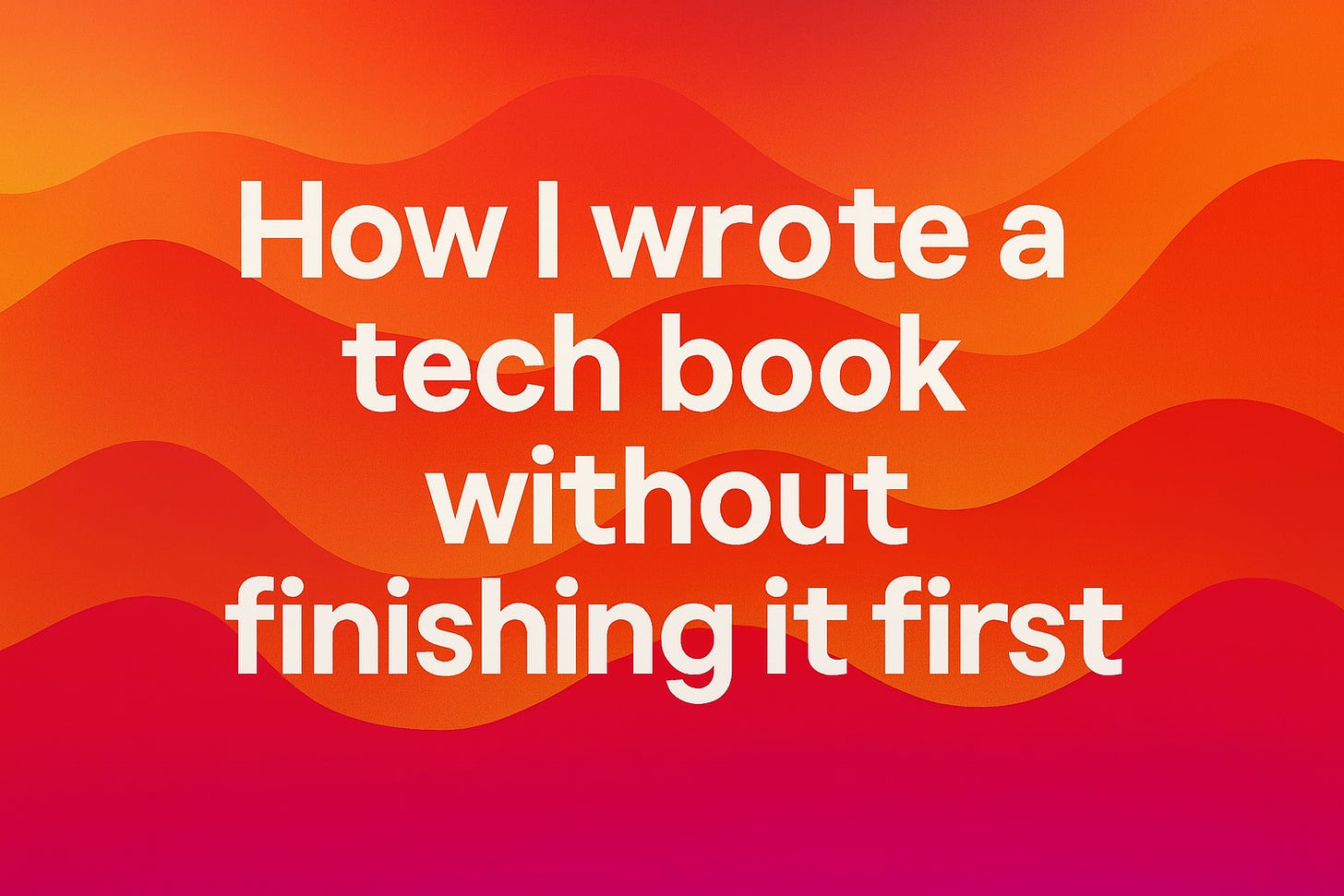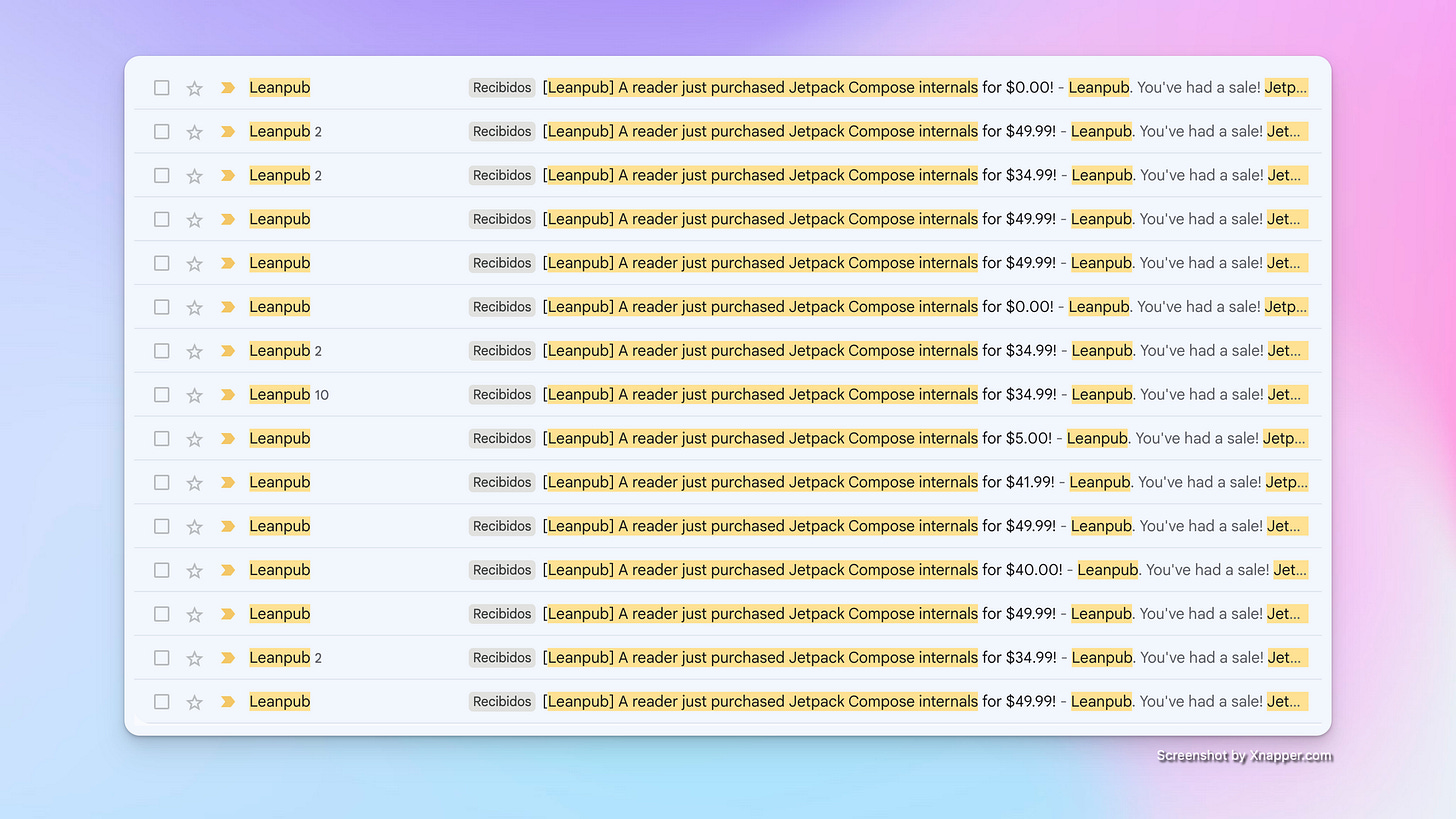How I Wrote a Tech Book Without Finishing It First
A lot of Android developers tell me they’ve thought about writing a technical book. Almost all of them also say they never found the bravery to start.
I know exactly how that feels. When I first thought about writing Jetpack Compose Internals, the doubts were all there: “I don’t have enough time,” “What if no one buys it?”, “I should probably wait until it’s perfect.”. Imposter syndrome was all over the place too. All those doubts refrained me from starting.
Publishing Before It Was Finished
The problem was, Compose 1.0 stable was around the corner. If I wanted my book to matter, it had to be out that same day. There was just one issue: the book was barely started.
Instead of following the “normal” path of disappearing for months to write a complete manuscript, I decided to publish early. Really early. The idea was simple: release the first version with only part of the book written, then update it gradually. Every time I published new chapters, readers would automatically receive them. I only needed to find a platform that would allow me to do that, and that was Leanpub.
This decision solved two critical problems:
1. I could launch on time, right when Compose was making its big splash.
2. I would know immediately whether people actually wanted the book.
Immediate Validation
Publishing half a book felt risky. But it was the right decision. As soon as I put it out there, sales started coming in. That was the clearest validation I could get. Developers didn’t just tell me they were interested, they proved it by paying for it. That is particularly important since public opinion and comments can be very misleading, and often not reflective of the actual demand. People often comment just to engage.
I was able to surf the Compose release wave and got a lot of early traction. That early response gave me the energy to keep going. I had people waiting for the next chapters, which turned writing into a cycle of feedback, updates, and momentum.
Launching at the Right Moment
On the exact day Compose 1.0 stable was released, Jetpack Compose Internals was out too. That timing made all the difference. Developers were hungry to understand how this new framework worked under the hood, and the book was there to fill that need.
The revenue numbers:
- Around $15k in the first month
- Later stabilizing at around $2k per month
- Even today it still makes $500 to $1k depending on promotion
- Total revenue around $70k today
This is how tech books normally behave. You can be lucky to get a viral boost at launch, especially if you have a good strategy and timming. Maybe some months after if too. But after that, it’s down to consistent promotion and SEO. If you stop talking about it, people simply stop buying. That is something that I have learned during this journey.
But the real win was not only the money. It was the credibility, visibility, and trust that came from putting something useful into the hands of the community. I could really grow myself into an authority on the topic, while I was also learning deeper and deeper about it. That also paid off with the course, where I could expand the content and go deeper into all the topics.
Not working with a publisher
I also chose not to work with a publisher. That would have slowed me down, taken away all control, and cut too deeply into the revenue. I wanted to cut all possible edges and take full control of the process. Only that way I could ensure that it was released right in time, that the challenge was worth it, and that I would be able to keep it up for the long term. Something to note here is that this was only possible because I already had a big audience and a lot of trust from the community. Otherwise distribution would have been a huge challenge.
By handling it myself, I decided on the timing, the pricing, the positioning, and also the updates. It was more effort, but it meant I owned the whole process.
What Other Developers Can Take Away
If you’ve been thinking about writing a book but never started, here’s what my experience taught me:
You don’t need to wait until it’s finished. Start small and build it in public. Every step and every bit of knowledge you share compounds.
You don’t need to be perfect. Readers value progress, but especially honesty. As long as you are clear about it not being finished, people will still jump in if the content is worth it.
You don’t need to ask for permission. You can take full control of the process if you want to.
What really matters is timing. Catch the right wave and ride it.
Final Thoughts
Writing a book sounds overwhelming, but it doesn’t have to be. You don’t need to lock yourself away for a year to produce a polished masterpiece. That would actually be a poor business decision. Any project needs to be validated early on, before investing too much time into it.
You can release early, validate demand right away, and grow it step by step while readers come along for the journey. You will gather feedback and be able to iterate on the content as you go, aligning it much better with the actual demand.
That is how I wrote Jetpack Compose Internals. And if you have been hesitating to write your own book, maybe this is the approach you need too.
The bravery comes after you start, not before. Just start. You will learn a lot by doing it, and the process will get easier as you go. Our brains are wired to learn by doing, not by reading. Analysis paralysis fades away as soon as you start.




This post came at just the right time. Thank you — it really meant so much.
Thank you so much for sharing your experience, Jorge!! ❤️👏🏼